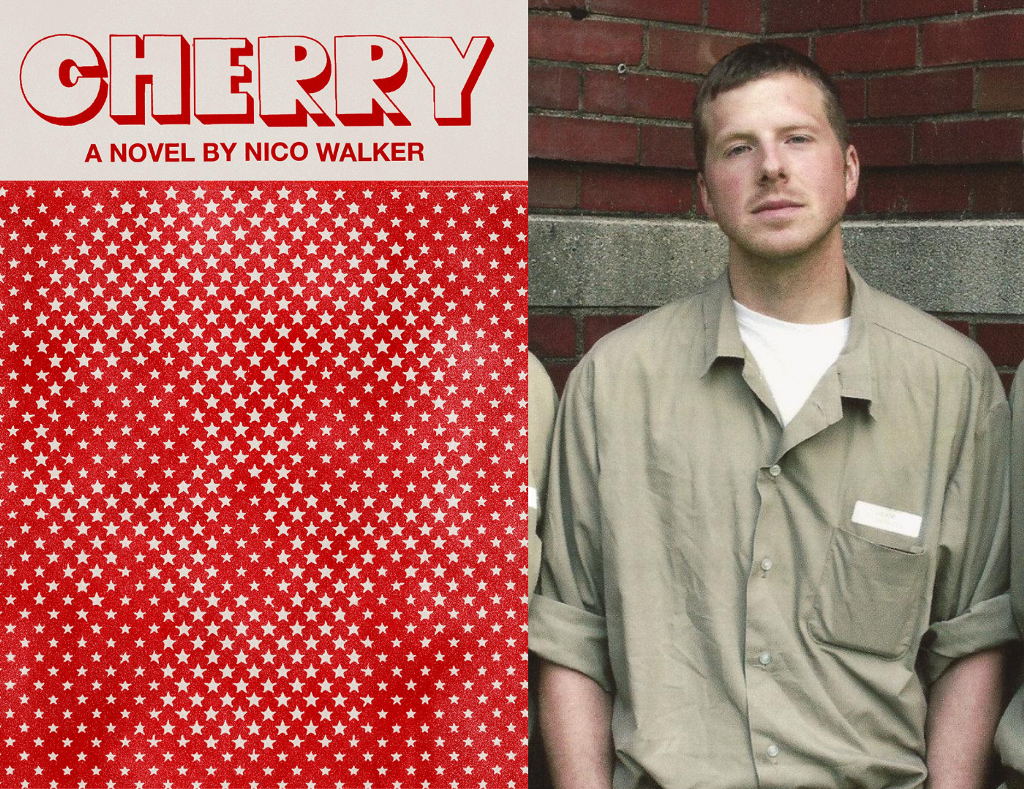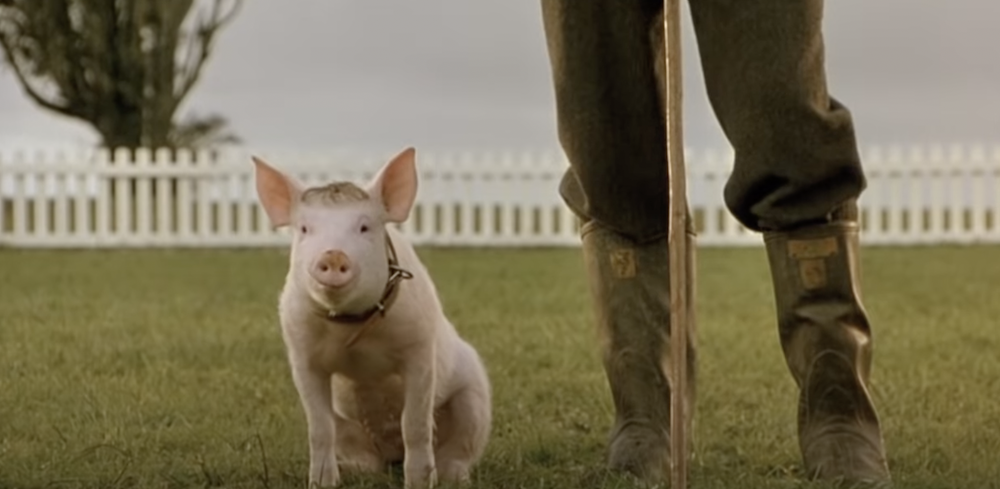Lit Mags
Alexander Chee Recommends New Fiction by Mattilda Bernstein Sycamore
“Between Your Heart and the Fabric” is a story about queer intimacy and the pursuit of revolution rather than acceptance

AN INTRODUCTION BY ALEXANDER CHEE
Imagine you’re at a gay bar and someone sits down next to you and starts talking to you about red ribbons for AIDS awareness. You aren’t sure if you like them but they’re funny even when mean and you go out to smoke on the sidewalk together, and a friend of your new friend shows up and then leaves and you get a funny story about them, and then another one, and then the friend shows up again with someone of interest, and then they tell you both about a party as they leave, and you go back in to finish your drinks like maybe you’re not going to the party, but then your new friend applies a fresh coat of lipstick and says, “Are you ready? We’re definitely going.” And off you go.
A night out becomes an adventure and then a story and then a novel. In this case, a queer novel also.
This was what Mattilda Bernstein Sycamore’s Sketchtasy felt like to me, the way a night out becomes an adventure and then a story and then a novel. In this case, a queer novel also, one aimed right at us, a novel that tell us stories about us as a way of asking us to imagine a bigger and better world, something that we can call our own within this one.
In this excerpt, we find the protagonist Alexa reading a book, Rebecca Brown’s The Gifts of the Body, with a sometimes lover, Nate. As they read together, Alexa tells us, “I’m thinking about this shame we all carry, the shame that means we deserve to die.” Sketchstasy is a call to reject the norms dictated to us by those who would never care about us but insist on telling us how to live — or die — as a way of obtaining the approval that will never come. It’s also a call to reject even the imitation of those norms. As a writer, over three novels, a memoir and five anthologies, Sycamore is someone who has always wanted revolution more than acceptance, and dreams that maybe that could be the best party of all. And this novel is her grand masked ball.
– Alexander Chee
Author of Queen of the Night
Alexander Chee Recommends New Fiction by Mattilda Bernstein Sycamore
Mattilda Bernstein S.
Share article
“Between Your Heart and the Fabric”
by Mattilda Bernstein Sycamore
I would never have imagined reading this book with Nate, but he came home one night and I was sitting at the dining room table, sobbing. No, I’d already stopped sobbing — I was just looking at the wall. Or, not at the wall really, but in that direction — you know how you can look right at something, but you don’t see it.
I was thinking about when I first heard about AIDS, maybe I was twelve and it was Rock Hudson in the Enquirer and I didn’t even know who that was, a famous actor my mother said and the headline told me he died of AIDS.
Liberace too — pictures of him really scared me, I didn’t know what to do with those pictures. I just knew that I was going to die, if anyone knew, knew about me, and they did know, so I knew I was going to die.
In The Gifts of the Body, the narrator is a home care worker for people dying of AIDS, and when I opened it up the first time I got scared because the writing was so simple and I wondered if all these deaths had changed Rebecca Brown’s writing. When Nate asked what was wrong, I handed him the book and he said we should read it together.
So now I’m already crying again on page 2, which is numbered 4 — the narrator’s talking about leaving little surprises under the pillow of the person she’s taking care of. Or rearranging his toys so the toys are kissing. “Rick loved surprises,” Rebecca Brown writes.
And then, on the next page, Rick is on the floor, or no, I guess it’s not the floor it’s the futon in the living room where he’s curled up in fetal position, writhing in pain. The narrator says to Rick: “I’m sorry you hurt so much,” and I’m thinking about how much I hurt. How much everyone I’ve ever known hurts, or everyone I’ve ever known who’s meant something to me, and what about the ones who act like they don’t hurt, like nothing’s affecting them at all, like Joey, look what happened to Joey.
And then the narrator does something that I can hardly believe. She gets on the futon with Rick. She gets on the futon and lies on her side and puts her arms around him as he’s sweating and in pain.
I’m kind of relieved that I can still cry like this, in spite of the coke cure. I’m only on page 7, and this book already means so much to me. The home care worker is cleaning the apartment while Rick is in the hospital — she wants Rick to come home to a place that’s soothing. She avoids the kitchen table, there’s something she saw there and when we find out what it is, when I find out what it is, that’s where I’m crying again.
Rick had gone out to get cinnamon rolls like he used to, after his lover died but before he’d also gotten sick. He’d gone out to choose the softest rolls, one for himself and one for the home care worker. And now he’s in the hospital. The narrator closes her eyes and lowers her head toward the table and I’m thinking of tears, tears at this table with Nate and how he’s still not looking up, which helps me not try to change anything and I wonder if he knows that.
“There’s something about no one else knowing someone is taking care of you,” Rebecca Brown writes — if Mrs. Lindstrom pretends the attendant is just there on a visit, on a visit saying hi, maybe if she just pretends, all this can become pretend. I look at Nate again, and I wonder what we’re pretending. Ever since I told him about Joey, he says he’s not in the mood for sex so I cook dinner because Nate says he’s trying to get healthy, though I’m sure he’s eating bacon and eggs for breakfast, and a hamburger for lunch, but it’s almost cute how he asks all these questions about my cooking and forgets everything I say. We sit down and talk like husband and wife or father and son or maybe just friends, that’s the best part, when it actually feels like we’re friends. Every now and then, Nate wants me to give him a massage, and then when I get hard he says oh, let me see that, and then he jerks me off until I come on his chest. And then I hate him again.
I should be reading this book with Avery, but he doesn’t like reading, and anyway he said he didn’t want to read a book about AIDS. But what about Joey, I asked, don’t you want to think about Joey?
Joey’s gone, Avery said — Joey’s gone, and he’s not coming back — what’s there to think about now?
It’s so surprising, when you cry and when you don’t. The narrator tells Ed that he can check into the hospice and then leave if he wants to, even though she’s never seen anyone leave. Is this an act of kindness? The narrator is so caring and detached, she feels so deeply for these people she only knows through their illness, and I wonder if this is what community means.
Ed turns down the hospice. He’s enraged, making contradictory demands. He’s a child, and an adult. He wants to have a garage sale. He wants the option to leave his house again on his own. The chapter is called “The Gift of Tears.”
I’m getting used to the light of this chandelier. Nate is behind me, placing another cocktail to my right, thank you. I wonder if I want him to touch my shoulder, but then he doesn’t.
I’m thinking about the way death brings you closer to childhood, does that mean into or away from pain? The way the narrator washes Carlos’s hands, arms, armpits, feet. His innocence at experiencing touch, with and without its implications. And then the fear — that’s the childhood I remember. Can there ever be innocence with so much fear?
Mrs. Lindstrom, who asks the attendant to call her Connie — she seroconverted from a blood transfusion when she had a mastectomy. Before blood was tested for HIV. She has a gay son, Joe, who feels guilty because he thinks he should be the one dying — his mother never did anything wrong.
I’m thinking about this shame we all carry, the shame that means we deserve to die.
Connie, holding onto her routine and hoping that if she doesn’t mention she can’t eat, maybe she’ll be able to. Ed says: “There won’t be anyone left to remember us when we all die.” And I wonder if that’s already true. How Avery has taken Joey’s place at the clubs with all the different-sized vials, and no one even asks, no one even asks about Joey. We sit in his apartment, and it’s like we’re ghosts.
These people want so much. This attendant, she tries to provide what she can. Maybe more. “When the epidemic started there was a shorter time between when people got sick and when they died.” That’s a line that really gets me, because this isn’t the beginning of the epidemic anymore, but one minute Joey was telling us — and I didn’t believe her, I really didn’t believe her, I thought it was some cruel joke. It’s all frozen in my head now, like we’re still standing on the Esplanade in the snow and Joey says: I’m dying. I’m dying. And the next day she went home to her parents’ house in Brandywine, Delaware.
I thought we were going to visit. She told us we could visit. She told us there were castles there. I thought we were going to visit the castles.
I remember that queen who came to our house in San Francisco to look at a room, and she wanted to do touch healing on everyone. I was appalled. I saw her around a few times, and she always acted like we were really close, and at first I was annoyed but then I started to like seeing her. Then the next time I heard about her it was for her memorial.
Or Thomas who arranged all these candles on the bathtub before we had sex in the bath, and I was like what are you doing, we don’t need candles. But he wanted it to be romantic. It was romantic. In six months he was dead.
I had one friend who went to every memorial he heard about, even for people he didn’t know. But I didn’t want to steal other people’s grief. As if there was a limited amount. Now I wonder if I should have gone to all those memorials. Maybe reading this book with Nate at the dining room table is some kind of memorial, but what are we going to say when we’re done?
“Like a bunch of ninety-five-year-olds watching their generation end.” I close the book for a moment and drink the rest of my cocktail, and I notice Nate’s shifted his body to the left, and I’ve shifted to the right, so we’re not directly across from one another anymore.
What is a lie, and what isn’t? Like when the narrator tells a new client that his former attendant misses him, even though she’s never actually met that attendant. And when the new client says: I miss him too. That place between your heart and the fabric on your chest, the fabric on your chest and the world beyond.
The narrator learns that her supervisor is leaving. She’s leaving because she’s sick. Another of these moments that feels like a shock — a shock to the narrator, a shock to me at this table with Nate where I keep crying and he doesn’t look up, except this time he does, just briefly, and then he reaches over for my hand and I reach for his, this gesture that happens so often in the book and maybe it feels nice here too. Although it’s hard to reach that far across the table, I mean reach that far and keep reading at the same time. So I pull my hand back, softly, and I smile — Nate smiles too, and then we both go back to reading.
It’s not that this book doesn’t have flaws, it’s just that there are so few of them. I’m getting to the end of my third cocktail, and there’s that feeling in my head that must be chemical, the perfect combination of liquor and coke, invulnerability on ice. It’s what I need to channel in order to fuck Nate — right now I could easily bend him over that white sofa. He would laugh in that drunk old guy way and say let’s go upstairs.
Maybe I’ll never have to do that again.
The book ends with Connie’s death. The ending is nothing but sobs until I have to put the book down and go upstairs to piss, I’ve been holding it for too long. I study my face in the mirror — under my eyes there’s a rash, and my lips are pressed up into a child’s frown.
I can’t decide whether I need a bump of coke, but I do one anyway, and then I wonder whether closing the book with the death of an old straight woman is dishonest. I go up to my room and lie on top of the velvet comforter and stare at the chandelier, floating in a way but also sinking. Eventually Nate comes upstairs and stands in my doorway. He looks like he’s in shock. I sit up, and he sits down next to me on the bed. For a moment it feels like we’re in the same place.








